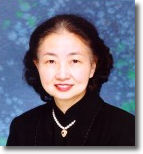

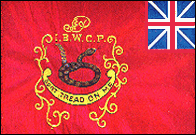
By accident, I find myself in the midst of the Lan Kwai Fong carnival...
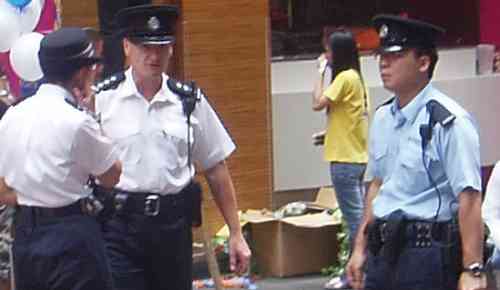



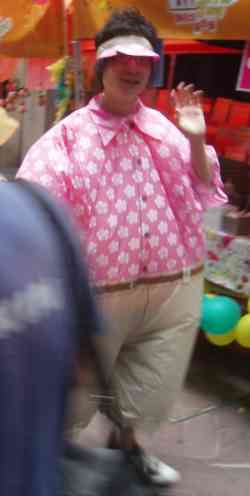
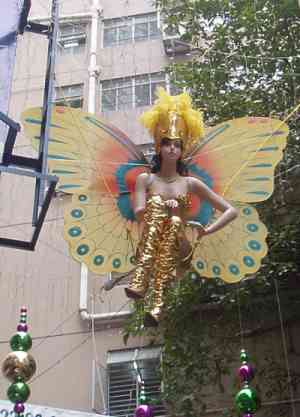

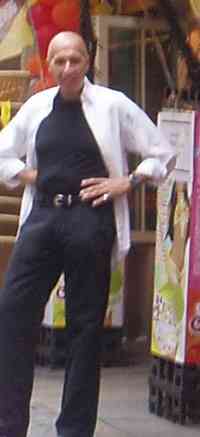

The mood on the Mid-Levels Escalator this morning is phlegmatic, as Hong Kong’s industrious, overtaxed and unrepresented bourgeoisie considers our visionary leader Donald Tsang’s expanded Executive Council and finds little to actively dislike. “Well at least he hasn’t picked anyone from the labour unions and grassroots,” says Ms Ng the stock broker. Indeed. The only new member of Sir Bow-Tie’s cabinet with any industrial relations expertise is the token factory owner Victor Lo, whose Gold Peak company faced down workers whining about their mineral supplements with calm efficiency last year. “And there are no teachers, social workers, or any of that lot,” adds Mr Wong the lawyer. This is the case. Former hospitals chief Leong Che-hung is there, as is academic and token pro-democrat Anthony Cheung. But the lumpen, bloated, public-sector masses haven’t got a look-in. “In fact,” my neighbour Mr Chan the banker chips in, “he hasn’t really chosen anyone from the property sector or the cartels.” True enough, we all nod in agreement as we glide down to Queen’s Road. And that’s no mean feat. People complaining that the Chief Executive has appointed too many legal, financial and securities folk, are missing the point. They were the only ones left after the fresh-faced Donald had weeded out all the undesirables.
THE PHRASE ‘competition law’ has long emerged from Donald Tsang’s lips with a hint of haughty dismissal – the idea being unworthy of actual contempt. But as I flick through the news in my office in S-Meg Tower this morning, it becomes apparent that the man Beijing appointed to spare the rest of us the trouble of electing him, feels a need to be seen to do something. It is not hard to see how this will go. A public consultation process will result in a recommendation, unveiled with a fanfare of blaring trumpets and dancing girls twirling batons in the streets, that we have a competition law. To divert everyone’s attention from the fact that the proposed regime will allow 98 percent of current market-rigging to continue, tycoons and cartels will put on a big act of being mortally wounded by the new law. Our pantheon of lavishly funded, empire-building public bodies will be joined by a dentally challenged competition watchdog, and ultimately no-one will notice much difference.
Sir Bow-Tie won’t end Government-business collusion because he can’t. It’s the Big Lychee’s most fundamental problem. The property developers and the civil servants gorge themselves from the same trough. If they were given separate troughs, the tycoons would have an incentive to see less public wealth being shoveled into the civil service one, and the Government would have an incentive to pour less of our common riches into that of the property developers. But as long as they have their snouts rummaging around in the same giant rice bowl, they are dependent on one another. Add in vultures like the tourism industry and scabby hyenas like public housing tenants, scavenging and gobbling up the bits of slop that fall to the ground, and the system suits nearly everyone fine – except the wealth-creating, island-dwelling middle class, who produce all the swill and are expected to be happy with nothing but the world’s longest series of outdoor covered moving walkways and escalators in return.
Tue, 18 Oct
What will the South China Morning Post clutter up its front page with every day now the latest episode of the glorious motherland’s bizarre re-enactment of the Soviet and American space missions of over 40 years ago has come to an end? Perhaps it can update us on the plight of the AIDS orphans in Henan Province who can’t afford US$30 a year to go to primary school.
And why has the Post Office commissioned paintings of deceased Cantopop stars from an artist with even less talent than the late crooners? Whatever they lacked in musical ability, they certainly weren’t the hideous and grotesque mutants and retarded-looking bimbos portrayed in the stamps.
Perhaps this also answers the first question – the SCMP can do some exposes on other subliminal political messages in public places. For example, they could find out which vicious member of Sir Bow-Tie’s administration made the cruel decision to use poor old Tofu-for-Brains on an anti-spitting poster.

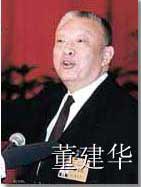
I arrive for breakfast at Yuet Yuen to find that delectable Administrative Officer Winky Ip has laid paper towels all over my side of the Formica-topped table. “I thought you’d be frothing at the mouth, like all the other Westerners,” she explains. “Because of To Kit.” Oh him. I roll my eyes, shake my head, sigh wearily, gather up the tissues and pour some tea. I thought Chip Tsao’s account of the sad transformation of Hong Kong’s gwailos from Peak-dwelling Canto-chick magnets to barefoot, penniless Sai Kung troglodytes was witty and illuminating.
“Chip is a national treasure,” I tell Winky, “the best satirist in the entire fragrant harbour.” Two plates of steaming congee arrive. “Mind you, he used to be even funnier,” I continue. “And then he translated Sir David Akers-Jones’s memoirs into Chinese. He’s never quite been the same since that”
Winky, about to shake pepper onto her juk, looks at me in disbelief. “He did that?” I nod. “Oh my God… the poor man. I never knew.” She stirs her porridge thoughtfully. “I managed to read half a chapter of it,” she says. I express my admiration. The blurb on the back cover was all I could handle. “Imagine reading the whole thing,” Winky murmurs. “And then re-writing it in a different language!” It’s a wonder Chip can still string a sentence together.
I flick through the newspapers. Today’s the day the Government releases its leaked-to-death proposals for constitutional development – add another drop of democracy to the half-empty bucket. After a minute’s silence, I notice that Winky is gazing, as if in a trance, at a toddler being fed by its mother a few tables away. She notices me watching her. “I don’t know,” she mutters. “I just get this strange feeling when I see a child.” I look around for a table to hide under. Hong Kong’s timetable for universal suffrage might stretch out for decades, but a high-flying, female civil servant’s biological clock ticks swiftly away.
“If you put your job first,” I tell her, “there's a reasonable chance that a job is all you'll have at 40.” She looks forlornly at her porridge. “Remember,” I add, “your choices narrow as you get older, while men's choices broaden.” She pouts slightly. I decide not to mention my longstanding suspicions that this habit alone condemns her to spinsterhood. “And remember that love is a choice, an action and a commitment. It is not a feeling.”
As I raise a spoonful of congee to my lips, she suddenly turns cross and looks over at me. “You’re bloody reading this out aren’t you?” she snaps, leaning down towards my lap and snatching my copy of You’ve Left It Too Late, You’ll Never Have Kids, Just Live With It. As I jump away, a slice of hard-boiled egg falls from my spoon onto the table – a lifeless, never-to-be-hatched reminder of her fading fertility
Thurs, 20 Oct
Beijing issues a white paper declaring that there will be no barbarian-style democracy so long as the Chinese Communist Party stands. And maybe that goes for the Big Lychee too, judging by the Hong Kong Government’s exciting proposed constitutional reforms, released – by one of those uncanny, cosmic coincidences – on the same day.
The Big Boss briefs the morning meeting, reading from his Government-issued Line-to-Take, which is designed to counter pro-democrats’ claims that the proposals are insultingly lame. “On the subject of a timetable,” our pro-Donald Chairman intones, “it’s basically a matter of timing.” He looks up to survey the bemused faces of his senior management team. What the hell does that mean? “We first have to create favourable conditions and have all the building blocks in place,” he goes on, “like grooming political talent and um…” He looks down at the sheet of paper again and skips a couple of bullet points. “Oh yes – we can’t exclude appointed District Councillors from all of this because they have the same responsibilities as elected ones, and it would be unfair to discriminate against them.” He looks up again, as if to plead for understanding. He didn’t think this stuff up. “And, um, these proposals are firmly grounded on public views,” he reads out, “and represent a major step towards the ultimate aim of universal suffrage.” He shrugs slightly as he puts the paper down. “You’d have though they could come up with better arguments,” he admits.
The problem, it occurs to me, is that the most effective arguments would provoke opposition from the other side of the political spectrum, and maybe even to our north. The logic of the proposals is that the days of the small-circle functional constituencies are drawing to a close. Ship owners, dentists, employers, construction firms and other groups demanding a rotten borough in the legislature were snubbed. The new functional constituencies will be elected – albeit indirectly – by the people, diluting the influence of the corporate electors. Chris Patten would probably approve. But the Government can’t stress this, because it needs a two-thirds majority in Legco – the votes of odious Liberal Party boss James Tien and his cartel representative friends – to get the package through. In order to get the turkeys to vote for Christmas, the Government can’t talk up Christmas, leaving the pro-democrats looking at the gloomy side of the festival.
As always, the Constitutional Development Taskforce’s Report is a literary joy, combining the dry, inert prose of the bureaucrat with the life, passion and humour of free people...
95% of Hong Kong people demand direct elections of the chief of HKSAR in 2007 and all councillors in 2008. I am one of the 95%. Go, go, go…
I would like the Hong Kong Government to increase the number [of] member[s] of the Election Committee to 6.5 million.
IS THIS LOUD ENOUGH? (Emily Lau)
…by any measure of GDP, Hong Kong is the most developed territory in the world that is not governed as a direct democracy
Everybody is watching you.
Frankly, almost any open and genuine procedures would be better than the present absurd system
The people of Hong Kong will not come of age until they are given one man one vote and can elect their leaders rather than have them forced upon them by a small elitist group of self interested shoeshiners
Reading through the morning news, a memory comes back from the days when we were poorer but happier. I would go up to May Road on the Peak Tram – does anyone do that any more? – stroll along to a sprawling, grey three-storey block, now probably replaced by a luxury mega-tower, and visit the eccentric Trisha. If, as was sometimes the case, she was holed up in Chungking Mansions on a dragon-chasing binge or eloping with a criminally inclined expat brat, the black-trousered old Chinese amah would invite me in anyway and Mr and Mrs Trisha would give me tea and cake, seeing as how I was their daughter’s only friend who wasn’t a suicidal, psychopathic, drug-addled dropout. Afterwards, back down the hill, I would buy an ice cream from the vendor outside Central Peak Tram Station.
Had I suggested to Trisha’s father that in a couple of decades’ time, his uncontrollable little girl would have a wonderful husband, brilliant kids and an extremely trendy and successful food business in London, he would have found it hard to imagine. He might have said, “It’s about as likely as the ice cream man’s son becoming Attorney General.”
